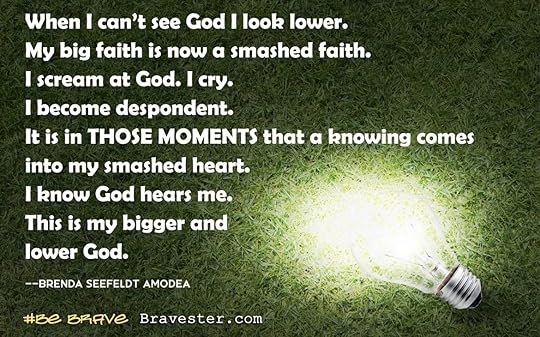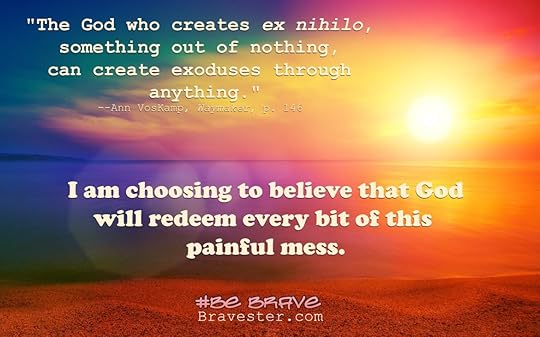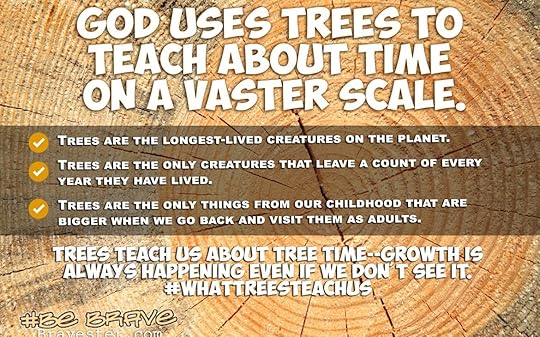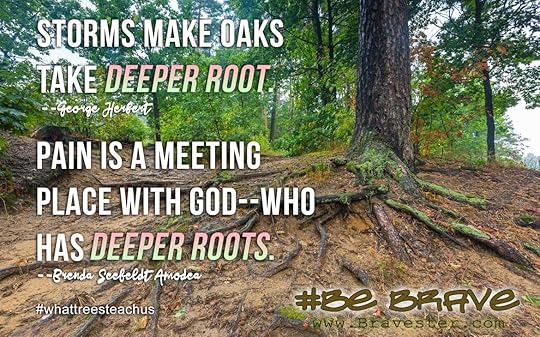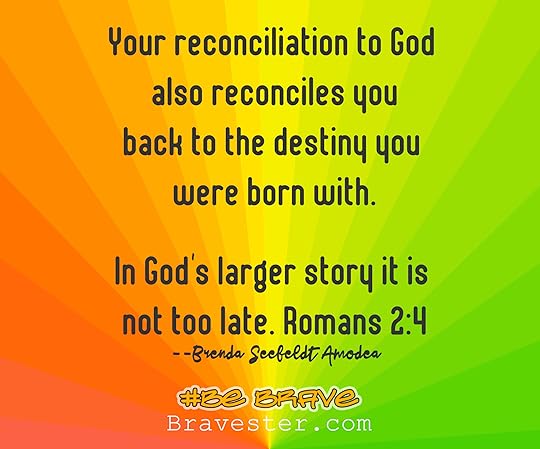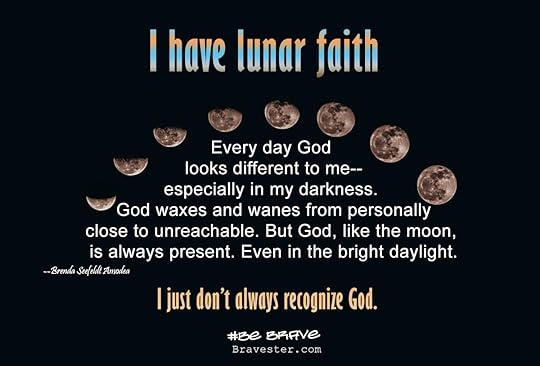Brenda Seefeldt Amodea's Blog, page 14
September 7, 2022
The Doubts About TikTok
When school began again after the covid shutdown, TikTok spurred a weird trend. Boys (mostly) were stealing items from the bathrooms of middle and high schools���and filming themselves doing it. Items like soap dispensers, toilet paper dispensers, even bathroom doors. I know this to be true because the teens in my church constantly complained about not being able to wash hands and other bathroom necessities because of these ���stupid TikTok videos.���
Us adults may be asking such reasonable questions such as ���How?��� How did they get that bathroom door out of the school? I know from my local schools which I subbed at for 27 years that there are security cameras outside of the bathroom doors that are used to check on who entered the bathroom at the time of a fight. Couldn���t those cameras see a soap dispenser in someone���s hands?
I have no answers. I just know that my teens complained about this for months.
But that���s not all. At the same time there was the trend of high school boys pooping on the stairs or in the hallways. Pooping! And filming themselves for TikTok! I know this to be true because my teens have also complained about this and the teachers in my church know the names of the many students who have been suspended for this.
Teens have historically done dumb things. This is a part of adolescent development and brain growth and why the laws of the land protect them. But this may be the lowest of lows for the dumb things that teens do. Would you have ever pooped and filmed yourself pooping and posted it to social media while you are in school?
I cannot believe I just wrote that sentence. 40 years of youth ministry has led me to write this sentence.Gen Z���s favorite app is a platform meant to attract and celebrate niche communities and their content. With the use of a hashtag, everyone can find ���their people��� in TikTok and learn all the things that they aren���t finding answers to from the adults.
Because everything is true that you see on the internet, right?Witchtokers are now warning about the dangers of TikTok.
An active community on TikTok is manifestation videos. As in if you speak it, generally matched with a sound that is intended to go viral, you can manifest it, especially if it is shared a lot. The promises usually relate to money, finding a romantic partner, and generally ���good things��� happening to the person who re-uses the video.
The gimmick is obvious. By making manifestation seem as quick and easy as uploading a video on TikTok, the hopeful viewer helps the sound go viral, thus adding to the promise that this is a legitimate life hack to achieve all your dreams in less than two minutes of upload time.
If only���
WitchTokers are now speaking out against this practice because it is a complete corruption of their manifestation practices. Something to which they very much believe in. A 2-minute video with a sound is not that practice. Source.
Everything is true that you see on the internet, right?There is something way more dangerous happening with ADHDTokers. There is a whole community connecting those with ADHD and those who think they have ADHD. They are finding understanding together–and medical startups ready to offer them Adderall.
With a 15-minute telehealth phone call with a nurse practitioner you can be diagnosed with ADHD and get your prescription. The medical startups ads are prominent in these feeds.
Of course, Adderall is one of the prescription medicines that is being abused and sold. Of course, 15 minutes isn���t long enough to figure out if something as complicated as ADHD is truly ADHD.
Thankfully major pharmacy chains have stopped filling prescriptions from some of the most prominent ADHD telehealth services. Source.
Because everything is true that you see on the internet, right?TikTok is providing a place of belonging and education for the many secret thoughts inside our beloved teens. This is a real influence on their forming worldview. How do we as parents and human influencers compete against that?
By casting doubt that not everything in a short video is true. By having the honest and awkward conversations that can expose that doubt.I personally do not have a TikTok account. I don���t think I need to be in the slimepit to be able to have these conversations. I do believe I need to be instigating the awkward conversations though. I trust the Holy Spirit a lot to give me those opportunities and then I take them every chance I get. I���m always looking for these opportunities. I recognize the awkwardness, trust the Holy Spirit, and start talking. Both the teen and I are grateful we had the conversation. As I also believe some teens do tend to avoid me here and there.
I know you don’t want to be avoided. Your teen’s closed bedroom door already has you feeling rejected. Still have these conversations. May I beg you to have these conversations? Please raise their doubts.
We have helps for you because this is so important, at least to this veteran youth pastor.
Try using your taxi drive time for these conversations.
Try this idea that teens like.
Try this free resource which this veteran youth pastor created over the years.
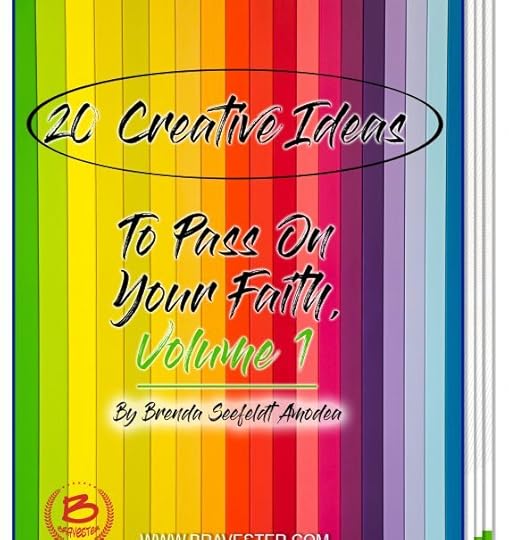
The post The Doubts About TikTok appeared first on Bravester.
September 6, 2022
The Beauty of the Ordinary
Hello beautiful ordinary person.
Ordinary is an adjective we generally don���t like. We want to be extraordinary. Our souls weren���t made for extraordinary. That is an extra level. (Do you see it?)
Eugene Peterson defined faith like this,
���Your life of faith is a long obedience in the same direction.���
That is a lot of ordinary. This is not doing those ���big things��� for God that make all the great stories. Again, our souls would become too exhausted. This is the ordinary decisions moving in the same direction.
This doesn���t sound like an extraordinary life until you realize that Eugene Peterson practiced this. When you sum up his life, now in death, his life was extraordinary while his days were just ordinary.

This is all about Salesian Spirituality. This is an ancient practice. This is a Catholic practice. This is common sense.
Salesian Spirituality is named after St. Francis de Sales. He wrote the book, Invitation to the Devout Life, in 1609. Francis de Sales believed the then revolutionary idea that holiness is possible for everyone, not just the professionally religious monks and nuns. Thank God for this revolutionary idea!
The Salesian tradition values doing the little things in the midst of ordinary and busy lives. In a very real sense, the person lives Jesus by ���doing all ordinary things in an extraordinary way.��� How we ���live Jesus��� is by doing the little things���or little virtues as de Sales named them. These are: Kindness, Gentleness, Thoughtful Concern for Others, Humility, Simplicity, Hospitality, Gratitude, Patience, Generosity, Honesty.
Those sound very ordinary.
For St. Francis de Sales, ordinary paves the way to holiness. These are those small, deliberate tweaks we put into practice to lead our brains. These are the fruits of the Spirit that make the world around us a better place.
When you regularly practice these little virtues, according to de Sales, your life then leads to those big virtues of bravery, boldness, prophetic imagination–which are generally only needed a few times in a typical person���s life.
When you practice the ordinary, you are ready for those brave decisions you will be called on to make.We love those stories. We tell those stories over and over. But they are not a part of the every day. Our souls couldn���t sustain that.
As old-school monastics have long figured out, ���passion can only get you so far when you encounter inevitable struggle and pain.��� Sigh, none of are exempt from pain. We need to practice these ordinary little virtues to prepare us and restore us and keep us moving in the same direction.
A good growing slower habit is pausing every day to recognize when you are practicing these little virtues.When our identity is found in Jesus, we are maturing into who we already are. We are free to find meaning in the ordinary as we daily live these little virtues.
This is the gift of the way of Jesus: We have purpose regardless of our roles. Each task, each relationship has eternal meaning.
Your identity is not in your work.
Your worth is not in your performance.
Your value is not in your calling.
Your identity and value is simply: I am a loved child of God. There are no qualifiers for this. I cannot be more loved if I perform better. I cannot be more covered by his blood if I try harder. I cannot be more free in his grace if I try more. I am simply loved.
The beauty of finding our identity in Christ is that our identity is always secure because it���s not grounded in our efforts, but based on the perfect performance of our Savior.
Hello beautiful ordinary person. How will you create beauty today with those little virtues?
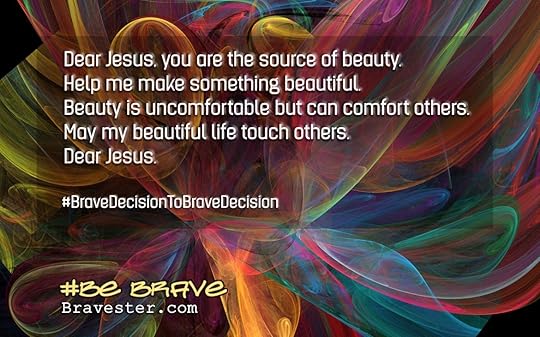
The post The Beauty of the Ordinary appeared first on Bravester.
September 1, 2022
Your Teen IS Ignoring You. You are Now Background-Voice Mom and are Still Influential.
In this article you will read truth that you know is true, now verified by science. This will be matched with new data about the Bible that re-verifies how important you are. Moms, you are so important.
Dads, you are another category. You weren���t even studied in this study or data collected on you for this new data. Dads, you are also so important.
A 2022 study published in the Journal of Neuroscience shows that teen brains shift from focusing on the mom’s voice to the voices of peers. The actual brain function shifts.
We all know how important peer friends are during this adolescent development process. We already feel second to their friends in importance. But now we know that this is part of the God-created brain���the brain that was created wired to change.
This new study used fMRI technology to watch the brain light up. As infants the brain lights up when the infant hears the mother���s voice. As teens, the mother speaks and the brain doesn���t register. But the brain does light up when an unfamiliar female voice is heard. Source.
My interpretation is the brain is saying, ���I���m lost in my identity as I���m growing up. I���m so lost���wait���did that new person just speak to me? Will this new person like me? Will this new person think I���m cool? Will I think I���m cool if this new person likes me?���
This is the growing brain shifting and growing towards independence. Mom���s voice is now the background noise supporting the independence.If that isn���t true?!!
So background-voice mom, know that you are still the most important voice to your teen. Every study still says so. There is still influence in being background-voice mom.
The 2022 study about the Bible from the American Bible Society verifies this. They found this big number: ���63% of adult Americans say their religious faith is the same as their mother���s was when they were ten years old.��� Source.
Moms, this is your voice having lasting influence. This is you providing that necessary foundation.Then there are these Barna statistics to support how important you are.
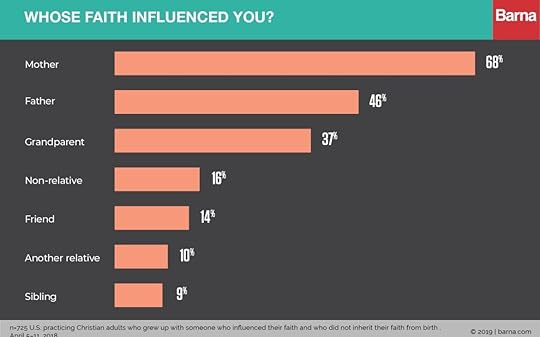
Hey dads, I see you too.
Of course, your beloved doesn���t stay ten and you are watching your beloved���s faith change right before your very eyes. You have fears that your beloved won���t take the childhood faith decision into adulthood. From this American Bible Study data report, the numbers also reveal–and are too high–that this is really happening.
But the same American Bible Study report also says, 52% of Gen Z are very curious (21%) and extremely curious (31%) about the Bible and/or Jesus. I’m excited about that big number!
Your teen has this foundation from you and is curious to learn more!This is such good news for this youth pastor’s heart.
You, mom, can feed this curiosity. Initiate the awkward faith conversations. We have a free great resource specifically to help you with that.
 https://bravester.com/product/20-creative/
https://bravester.com/product/20-creative/(There is also a Holiday version for $3.99, https://bravester.com/shop-now/)
Don���t be afraid of their questions or of their doubts. Research together. Remember that, ���Doubt is not toxic to faith. Silence is.���
Feel this holy tension with your teen and wrestle through it until you both see the holy. This means more awkward faith conversations. This means you won���t have answers���until you both do the research together.
Your teen will hear you in this shared holy tension. Your teen will hear you loudly, likely all the way into adulthood.
This youth pastor’s heart says thank you.
The post Your Teen IS Ignoring You. You are Now Background-Voice Mom and are Still Influential. appeared first on Bravester.
August 29, 2022
God is Not a Stupid God, He is a Stooping God
I’ve worked with teens as a youth pastor since 1981. It is one of my favorite identities.
This means I have talked to a lot of teens. Some who know Jesus and some who don’t. I’ve heard more than once,
“I don’t believe in God.��He’s done nothing for me.��God is stupid.”To which I have replied many times, “God is not a stupid God, he is a stooping God.”
Your pain is a beginning or your pain is a door to distrusting God. So before you declare God as stupid, have you ever considered how often God stoops down?
God stoops down to hear you. God stoops down to see you…and change things.
I know this from my own life and from what I have learned out of the book of Psalms, particularly Psalm 18.
But in my distress I cried out to the Lord; yes, I prayed to my God for help. He heard me from his sanctuary; my cry to him reached his ears. 7 Then the earth quaked and trembled. The foundations of the mountains shook; they quaked because of his anger. 8 Smoke poured from his nostrils; fierce flames leaped from his mouth. Glowing coals blazed forth from him. 9 He opened the heavens and came down; dark storm clouds were beneath his feet. 10 Mounted on a mighty angelic being, he flew, soaring on the wings of the wind. 11 He shrouded himself in darkness, veiling his approach with dark rain clouds. 12 Thick clouds shielded the brightness around him and rained down hail and burning coals. 13 The Lord thundered from heaven; the voice of the Most High resounded amid the hail and burning coals. 14 He shot his arrows and scattered his enemies; great bolts of lightning flashed, and they were confused. 15 Then at your command, O Lord, at the blast of your breath, the bottom of the sea could be seen, and the foundations of the earth were laid bare. 16 He reached down from heaven and rescued me; he drew me out of deep waters.
Psalm 18:6-16
I love the narrative description of this Psalm! This God is not aloof. This God is not still. This God is not busy.
And in my distress, he hears me. My cry reaches his ears. And he moves heaven. Then he stoops down from heaven and rescues me.
Psalm 18:35 continues, You have given me your shield of victory. Your right hand supports me; your help has made me great.
God supports me (and you) and he (and she) makes me (and you) great.
This is beautiful truth is repeated more in the Psalms.
Psalm 17:6 – I am praying to you because I know you will answer, O God. Bend down and listen as I pray.
Psalm 31:2 – Turn your ear to listen to me; rescue me quickly. Be my rock of protection, a fortress where I will be safe.
Psalm 86:1 – Bend down, O Lord, and hear my prayer; answer me, for I need your help.
Psalm 102:1-2 – Lord, hear my prayer! Listen to my plea! Don���t turn away from me in my time of distress. Bend down to listen,and answer me quickly when I call to you.
Psalm 113:6 – He stoops to look down on heaven and on earth.
Psalm 116:1-2 – I love the Lord because he hears my voice and my prayer for mercy. 2 Because he bends down to listen, I will pray as long as I have breath!
Psalm 119:135 – Look upon me with love; teach me your decrees.
Psalm 119:153 – Look upon my suffering and rescue me, for I have not forgotten your instructions.
Psalm 144:7 – Reach down from heaven and rescue me; rescue me from deep waters, from the power of my enemies.
I just wanted to pass on these many beautiful verses from the Bible to you.
Then there is the one story of Jesus. It is when he meets the “adulterous woman” who is nearly naked and caught in her sin and shame. He is asked to cast judgment on her. But what does he do?
They were trying to trap him into saying something they could use against him, but Jesus stooped down and wrote in the dust with his finger.
John 8:6

This God is not aloof. This God is not still. This God is not busy. This God is not on the edge of his seat waiting to punish you. This God is stooping down and writing in the dirt of your life.
Your dirt. Your life.This is not a stupid God. This is a God who is for you. This is a Larger Story God who is very interested in you���even your pain.
I invite you to find this God who is for you. Who is stooping to find you.
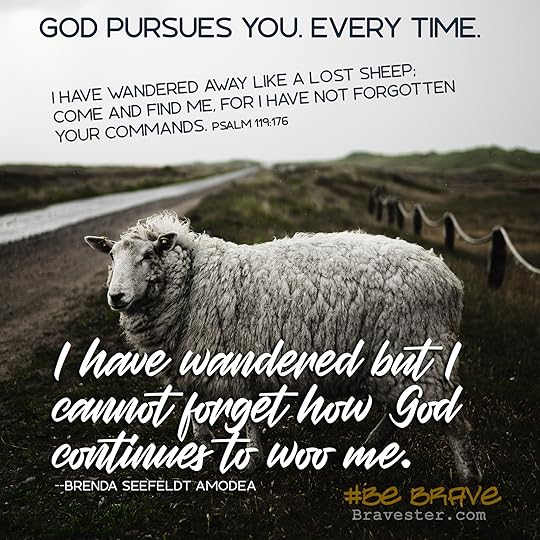
The post God is Not a Stupid God, He is a Stooping God appeared first on Bravester.
August 24, 2022
My Tools to Help with Teen Anxiety
I don���t need to link to research reports to tell you that teen anxiety is up. You know this already. We all know this already. It was up before the pandemic and it has increased because of the pandemic.
There are plenty of places to point fingers for this increase of anxiety in our teens: smartphones, social media, divided culture, systemic racism, climate change, inflation, FOMO, divorce, having to figure out gender identity, student debt, terrorism, the 24-hour news cycle, the economy, what the pandemic did to education, toxins in your gut, too many choices, too little sleep, Red Bull.
I made that last one up to make a point (I have not read any Red Bull research). We can blame these factors of why so many are suffering from anxiety or we can help our teens cope wiser. Blame is not a coping mechanism. Blaming feels like we are doing something useful but we are not.
You feeling helpless is a coping mechanism you can���t fall back on either. Even as you do feel helpless. Your teen is not growing up in the same youth culture you did. And I understand why you are so scared.
Maybe you also suffer from anxiety. Maybe this gives you some compassion for what your teen is struggling through. (And his/her friends! They need you too!)
Or maybe you are having a hard time understanding why your beloved does become so overwhelmed and crippled by anxiety. And are frustrated because your words and God���s word doesn���t seem to help at all.
I���ve got four things for you that I am leaning on more and more as I work with teens.
1One is this saint���s blog, Grace Abounding in OCD. It is written by 22-year old Aubrynn. This gifted writer puts words to the crazy thoughts that anxiety brings on, especially when it comes to faith questions. Start by reading this:
When Scripture Turns Terrifying
2The 2nd is the 5-4-3-2-1 practice. This is based on our five senses and how they can ground us, especially when the feelings of anxiety overwhelm.
As a pastor I already consciously try to apply the five senses to my teaching already. I try to apply the five senses to my own quiet times of meditation. I know I learn more when my five senses are involved.
So when the world is spinning, the mind is racing too fast, you or your teen can���t discern what is true and what is a lie in that very moment, find grounding with this practice. The ���trick��� is to focus on your present, your surroundings and your environment, to ground you in the present instead of the anxiety of ���what if.��� Here���s how:
Sight: Look around for five things that you���re able to see. Name them.
Sound: Identify four things you can hear. Name them.
Touch: Touch three things that you���re able to feel. Touch them.
Smell: Identify two things that you can smell. Name them.
Taste: Notice one thing that you taste. Taste it.
This is not my wisdom but a practice I���ve picked up from several books and podcasts as I continue to learn about teens. I���m just passing on what I���m using to help you.
3On Instagram and Facebook I follow Black Liturgies by author Cole Arthur Riley. She writes these breath prayers that center you on truth. Like just these two that I���m posting here.

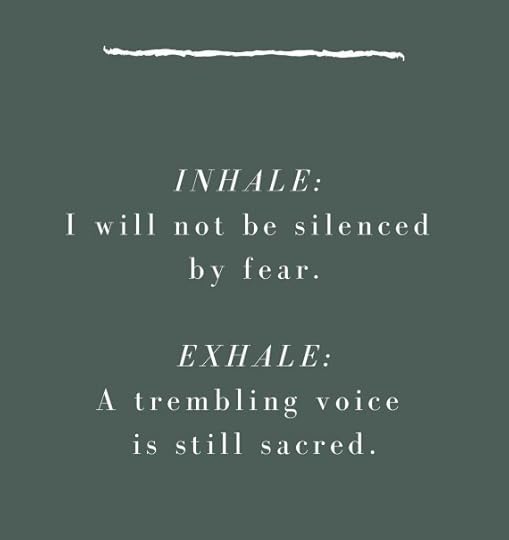
I had a hard time choosing these two. There are so many good ones. Follow her, send/print/put in lunches these breath prayers to your teen so he/she has them when the world starts spinning.
https://www.instagram.com/blackliturgies/
https://www.facebook.com/blackliturgist
4The fourth thing is I am very okay with recommending a visit to the doctor to talk about it in that setting. I want the teens to know that this is a normal next step when anxiety has become so crippling. I want hope for them and sometimes that comes from a doctor and therapy. I am so grateful for doctors and therapists who excel at this for teens.
I will probably have more helps in the future because I see this a a problem that is not going away soon. And there are so many people seeking to create true help.
So, parent, be encouraged. There are good people helping resource you as you day in and day out help your teen.
The post My Tools to Help with Teen Anxiety appeared first on Bravester.
August 8, 2022
Healing Our Lives on the Other Side of the Pandemic
We have lived through history. We are living through history? At what point do we become a post-pandemic world? At this point, I do not know. I wonder if we ever will be post-pandemic.
At the same time the world around us is speeding back to 100 percent and is expecting 100 percent out of us. But we don’t have 100 percent to give.
As I’ve heard in several John Eldredge interviews,
We are living on our reserves.“We are rallying after getting through the pandemic. In order to rally you tap into your reserves.”
You know this is true deep in your soul, don’t you? Now you have words for it.
We are not meant to live on our reserves. We are meant to live our lives out of the depths. And according to what I believe, out of the depths of God’s intentions towards us.
 This is what living in our reserves is getting us. How true are these for you:We are experiencing short-term memory loss.We are sleepier. Every little thing makes us more exhausted.We have lost track of our age.We have a loss of creativity.Overthinking is crippling us because during the pandemic we didn’t even know when to shake hands. Work/life balance is becoming obsolete. We have covid weight to work off or grow to accept. Covid weight is not like regular weight gain because we didn’t put ourselves on quarantine.We are experiencing huge losses of trust. During the pandemic everyone became the enemy because anyone had the potential to kill you. (Ponder the damage of that?)We have lost trust in institutions. Particularly the government because no one knew how to lead through the pandemic.We have lost trust in relationships. Even though now everyone is not the enemy, our souls are recovering from this harsh truth we had to live with for much longer than the “two weeks to flatten the curve.” We have fallen out of relationship with many people. Think deeper, have you maybe made up false narratives as to why you are no longer friends with some people? Do those false narratives fall back into the safety you want because you didn’t feel safe for two years?We are seeking isolation more. Have you found yourself glad when you are not invited to the party? Do you experience relief when you get out of something?Researchers are just beginning to study the long-term damage of mask-wearing. This also made everyone the enemy because burglars and terrorists wear masks, people with good intentions don’t wear masks. Except now we do. Yes, we had to wear masks and the intentions were good and honorable. This is too upside down for our souls to figure out.What about the soul damage done by our increased social media use, especially during those shutdown months? We have nothing left to give grace to irritating people.
This is what living in our reserves is getting us. How true are these for you:We are experiencing short-term memory loss.We are sleepier. Every little thing makes us more exhausted.We have lost track of our age.We have a loss of creativity.Overthinking is crippling us because during the pandemic we didn’t even know when to shake hands. Work/life balance is becoming obsolete. We have covid weight to work off or grow to accept. Covid weight is not like regular weight gain because we didn’t put ourselves on quarantine.We are experiencing huge losses of trust. During the pandemic everyone became the enemy because anyone had the potential to kill you. (Ponder the damage of that?)We have lost trust in institutions. Particularly the government because no one knew how to lead through the pandemic.We have lost trust in relationships. Even though now everyone is not the enemy, our souls are recovering from this harsh truth we had to live with for much longer than the “two weeks to flatten the curve.” We have fallen out of relationship with many people. Think deeper, have you maybe made up false narratives as to why you are no longer friends with some people? Do those false narratives fall back into the safety you want because you didn’t feel safe for two years?We are seeking isolation more. Have you found yourself glad when you are not invited to the party? Do you experience relief when you get out of something?Researchers are just beginning to study the long-term damage of mask-wearing. This also made everyone the enemy because burglars and terrorists wear masks, people with good intentions don’t wear masks. Except now we do. Yes, we had to wear masks and the intentions were good and honorable. This is too upside down for our souls to figure out.What about the soul damage done by our increased social media use, especially during those shutdown months? We have nothing left to give grace to irritating people.You know this is true deep in your soul, don’t you? Now you have words for it. And please make the brave decisions to give compassion to those irritating people now that you do see this. This is part of the healing that we all need.
The pandemic gave us all a reset because the pace of life before the pandemic was unsustainable. Before the pandemic we were living in an ever-increasing pace of life. You knew this was an unsustainable pace because when you deleted those items from your calendar in March 2020 you felt joy.
Are you feeling any joy right now? Hopefully there have been moments of joy in this post-pandemic life. In those joyful moments do they also feel unstable? Like tragedy can still strike?
We need to replenish our reserves. We need to take care of our souls so that more healing is coming in than is going out.We just can’t go back to normal. I especially don’t want any return to the Religion of Enoughness so prevalent before the pandemic. This Religion of Enoughness will do nothing to replenish our reserves.
With the extra time in the pandemic I did some curious study of Salesian Spirituality written by St. Francis de Sales. This is a Catholic saint who put together these then revolutionary thoughts about holiness being possible for everyone, not just the professionally religious monks and nuns. His thoughts were first published in 1609.
The Salesian tradition values doing the little things in the midst of ordinary and busy lives. In a very real sense, the person lives like Jesus by “doing all ordinary things in an extraordinary way.”
St. Francis called these little things we do little virtues. The primary Salesian virtues are Kindness, Gentleness, Thoughtful Concern for Others, Humility, Simplicity, Hospitality, Gratitude, Patience, Generosity, Honesty.
These are those small, deliberate tweaks we put into practice to lead our brains. (Read the whole series!)
According to Salesian Spirituality, when we practice these little virtues daily they will lead to the practice of the big virtues which are generally only needed a few times in a typical person’s life. What are these big virtues? Bravery, boldness, and prophetic imagination. Those big virtues are Bravester but they only come a few times in a person’s life and from daily practicing the little virtues.
Are you having an a-ha moment?How are you daily practicing kindness?
How are you daily practicing gentleness?
How are you daily practicing thoughtful concern for others (especially the irritating people)?
How are you daily practicing humility?
How are you daily practicing simplicity?
How are you daily practicing hospitality?
How are you daily practicing gratitude?
How are you daily practicing patience?
How are you daily practicing generosity?
How are you daily practicing honesty?
There are no grand life redirection decisions here. It is slowing down and practicing these little virtues so you are ready for those God moments that require your brave decisions. It is being dependent on a Savior, and that savior isn’t me.
You can be ready for those God moments even as you are replenishing your reserves.
This sounds like a do-able faith life. Not the grand, sold-out-for-Jesus decisions which we think make up our faith life. Those moments really are rare.
Growing faith is the small, deliberate tweaks to your thinking because you choose to give God more credibility than everyone else. It is finding and valuing the moments of silence to find these little virtues. It is in those moments of doing some forest bathing. (The pandemic has also taught me to love #whattreesteachus.)
We are changed from the pandemic. All of us. May we take the moments to heal our souls and live healthier in this new normal.
Bonus thought:
Before the pandemic, during the pandemic and even now after the pandemic, life crises are still happening. The things that smash our hearts are still happening despite a pandemic. We are not exempt from pain even in a pandemic.
You have friends who need you to help them carry their pain. Your friends need you to be brave, bold and full of prophetic imagination because they are not able to.
When not being invited to the party gives you relief, the thought of helping carry your friend’s pain feels overwhelming–even though you want to. I have written a small book to help you do this well and not overwhelm you.
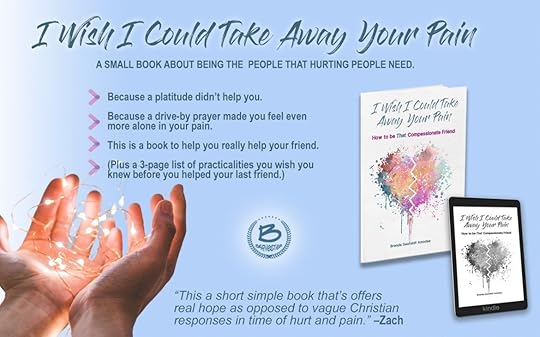
The post Healing Our Lives on the Other Side of the Pandemic appeared first on Bravester.
July 18, 2022
Even You Can Be Heard by the King
I don���t know what shame you struggle with that defines your life. This is for you. This is especially for the single parents. I wish for your shame to end. I wish for your story to be defined by bravery.
We have this story of the early years of King Solomon. It is found in 1 Kings 3:16-28. The story feels like it was told as a way to show how wise Solomon was. Here was this one difficult situation and Solomon found a brilliant way to find the resolve.
I���m sure there were many instances of Solomon���s wisdom to choose from but this one story is the one that made the cut.
Which is why I find it interesting that the one story chosen is the story about two unmarried women with children who were called prostitutes. Maybe they were. Maybe they were because they did not have a safe place because they were simply women.
Women, when in ancient history have we ever been in the position to be able to make sexual choices for our lives? Or financial choices? Or social choices?
The options for women back then were to stay in your father���s house, marry (generally not for love but from an agreement made by men), or prostitution. Every option was for a woman to be someone���s property.
These two women did not have many options already. Then they got pregnant by men who were absentee fathers. It is so relatable that they are housemates with each other. Because the budget struggle is real! Even back in these Old Testament days. Or maybe they were living in the red district together.
They were both single mothers raising their newborns together. Until one baby died. I���m sure their living conditions were not all that safe.
This case gained them an audience with the renowned King Solomon. I���m sure they were quite used to not being seen, whether from the passing crowds or from their own families or from the men who came to visit them. Now here they were being seen and heard by the king himself.
This thought from this Sunday school story is overwhelmingly big. They were seen. I believe this also means that you are seen by the Larger Story God.Shame likes to keep you small and unseen. You know the decisions you���ve made. You know how you justified those decisions. You believe there is no way you are worthy to bring your problem to God or to ask God how to get out of this mess. These are the lies shame loves to tell you.
Lie! This is who God is! He sees you. God’s movement towards us is redeeming the shame. Wherever shame is redeemed, you will see God���s fingerprint.
I have met the truest version of God in the redemption of my pain.There is another Old Testament story of Hagar, the rejected single mother of Abraham���s first born. Genesis 16. Abraham���s wife did plenty to heap shame onto Hagar, even though Sarah set up the vulnerable Hagar to be in this situation. Again, women had so little say-so over their lives. At Hagar���s low point of being pregnant and full of shame while suffering in the desert because she was on the run, she met God.
What did Hagar name God after this encounter of being seen in her shame?
You are seen by the King.Thereafter, Hagar used another name to refer to the Lord, who had spoken to her. She said, ���You are the God who sees me.���
Genesis 16:13
In that seeing, pour out your every bit of pain. All of it. God is not shocked by you.
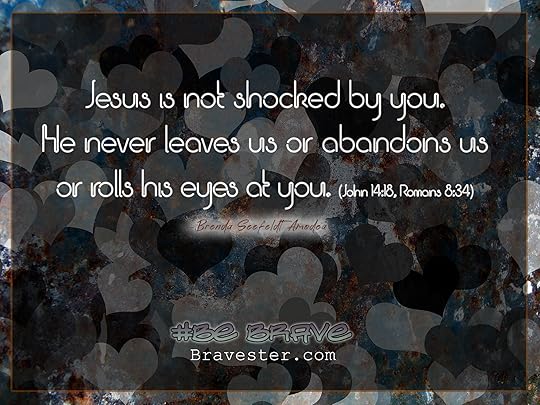
King Solomon heard both sides of the case and then he asks the one question that reveals each woman���s deepest motivation.
What is your deepest motivation?Even you, single parent: what is your deepest motivation?
You get to answer that question and the King will hear you and use the Larger Story wisdom to give that to you.
Yes, even you.
You may think this is just an Old Testament Sunday school story. But when have you heard a Sunday school story about two single parents? Or about a king who asked those single parents their deepest motivation? And then the king does the right thing for that single parent?
Yes, even for you.

He reached down from heaven and rescued me; he drew me out of deep waters. Psalm 18:16
But in my distress I cried out to the Lord; yes, I prayed to my God for help. He heard me from his sanctuary; my cry to him reached his ears. Psalm 18:6
The post Even You Can Be Heard by the King appeared first on Bravester.
July 13, 2022
A Brave Faith Has Moments of Awe
���Our son���s probation officer was over last week and we had a good meeting together.���
I shared this sentence when I met up with a graduated teen of mine. He asked what���s new in my life. I brought it up because it was a good thing that has happened lately. It was something encouraging to share.
This God-loving, someone-I���m-so-proud-of man in front of me asked questions about this visit with the probation officer. I saw the tears form in his eyes. I know I am one of those important adults in his life who has been intentional with him for over 30 years. It broke his heart that I was so accustomed to the prison cycle.
As for me, this is just something that is a part of my life. This is part of my brave faith. This was a good meeting. This meeting with the probation officer was an answer to prayer.
A brave faith sometimes brings people to tears.A brave faith gives the person making the brave decisions and the person invited into those brave decisions moments of awe.
Unforgettable moments that bond you together.
That change you.
That makes the way of Jesus admirable.
This cannot be said about a safe faith.
A safe faith does not inspire. A safe faith does not lead to awe-inspiring moments. A safe faith does not remind you of Jesus.
A safe faith also doesn���t lead to meetings with probation officers. But remember that meeting was an answer to prayer.
A brave faith prays for the unthinkable. Because, perhaps God���
I define bravery as your decisions to actually trust God. That is full of vulnerability because with God there is not the guarantee of the controlled outcome you want.
Of course, a safe faith likes to minimize vulnerability. A safe faith serves as a numbing protector from the very real mean cruel world. A safe faith prays small.
How did I grow my faith to be so brave? It began with love. (Here���s part of my story.) True love saves the world. The very words Jesus lived out on the cross that broke him.
I see this hashtag a lot, #lovewins. I hear messages preached on how to be a better Christian is to love more or love better. But to really live this you have to realize your heart is going to break. People are going to disappoint. God is going to disappoint. (Really it is your expectation of God that disappoints. Thank God I’ve learned about this Larger Story God.) You are going to have a smashed heart and want to quit. Instead you decide to hide in bed for a day���or three. You choose to love again.
Love has a 100 percent possibility of smashing your heart. Hashtags don���t tell you about that.
You choose to love again because you really believe in this Larger Story God. I believe in this Larger Story God. I believe in God who redeems every bit of pain. I have learned that this is who God is from my despair. From my yelling at God. From my wrestling with God. By that I mean that I didn���t accept the platitudes about God. I had to find out on my own who God was. I have a relationship with God who I love and who has broken my heart. I know that God is for me.
This is my brave faith filled with hope from bloody fists. I see it in the eyes of this beloved graduated teen of mine. We are both changed.
Do you want to join me in the front seat too?
 This is another awe-inspiring moment shared.
This is another awe-inspiring moment shared.The post A Brave Faith Has Moments of Awe appeared first on Bravester.
June 14, 2022
Memes to Share About the Larger Story God
June 2, 2022
I Am Loved by the God of Vengeance
Once again I am saying how much I love the book of Psalms.
���There is no faithful prayer in Israel���s official book of worship, the Psalter, that trivializes evil, no genuine faith that ignores the destructive powers of sin, and no true witness that turns a blind eye to the violence of our world. It is for this reason that we turn to the psalms for guidance in times such as these, for they show us what we can���and indeed should���be praying in a violent world.��� ���David O. Taylor https://www.wdavidotaylor.com/blog/prayers-for-a-violent-world
Our world is full of unspeakable evil. And ���everyone��� (it sure feels like it) is speaking about it all of the time in every voice so this unspeakable evil keeps being heard and thusly permeates deep into our very being. Our souls are disturbed.
We need the Psalms even more.
It is in the reading of the Psalms (again) I discovered a new name for God. It is one that I���ve not heard of before. Psalms are full of names for God such as my Rock, my Protector, Good Shepherd. This name is not as comfy. I���ve yet to hear this name in a worship song.
Psalm 94:1 says O Lord, the God of vengeance, O God of vengeance, let your glorious justice shine forth!
This does not sound like a loving adoring name for God.
It is the God my soul needs now. In this world of injustice that disturbs my soul.God is the one who avenges the unjust. This is all over the Bible. God does unleash vengeance out of love for me. Out of love for you. This is because of love.More Psalms that I need right now:
Psalm 37:28 ��� For the Lord loves justice, and he will never abandon the godly.
Psalm 103:6 ��� The Lord gives righteousness and justice to all who are treated unfairly.
One more Psalm 27:14 I���m hanging on to right now. Wait patiently for the Lord. Be brave and courageous. Yes, wait patiently for the Lord.
This is my soul cry–as I wait. I wait for this God of Vengeance because I trust in this Larger Story God.I did ask John to write a worship song using that name. It was a challenge. He loves writing songs out of the Psalms. He���s pretty particular about theological accuracy in his music.
As for what kind of song I asked our son Kenneth. Should it be a slow or fast song? What kind of guitar riffs? I asked Kenneth for his wisdom because he���s serving time in prison which is an unjust place. Prison is a place where you are dehumanized. He is very dependent on this God of Vengeance to help him persevere. His suggestion was it should be mellow but hard. Kind of like “My Own Prison” by Creed.
This took John less than a week to write. He’s not one to turn down a challenge, especially from me. Here is John���s song performed by Larger Story Worship, which is the worship band for my church. It���s some Creed mixed with some Jethro Tull flute. This song fits in nicely with our worship sets���especially lately.
I will wait patiently for the God of Vengeance who promises to make all things right.
Meanwhile, the brave pray as we personally make the brave decisions to change.
 Faith & Prejudice
Faith & PrejudiceMay we start making the brave decisions
Here is a written prayer for when you are overwhelmed by too much information.
The quote from David O. Taylor, which opened this article, links to a list of prayers to pray when you need the God of Vengeance.
And don’t you need a good kicking worship song right now?
This is the stuff that helps us to wait. Come, God of Vengeance.
Photo by David von Diemar on Unsplash
The post I Am Loved by the God of Vengeance appeared first on Bravester.

